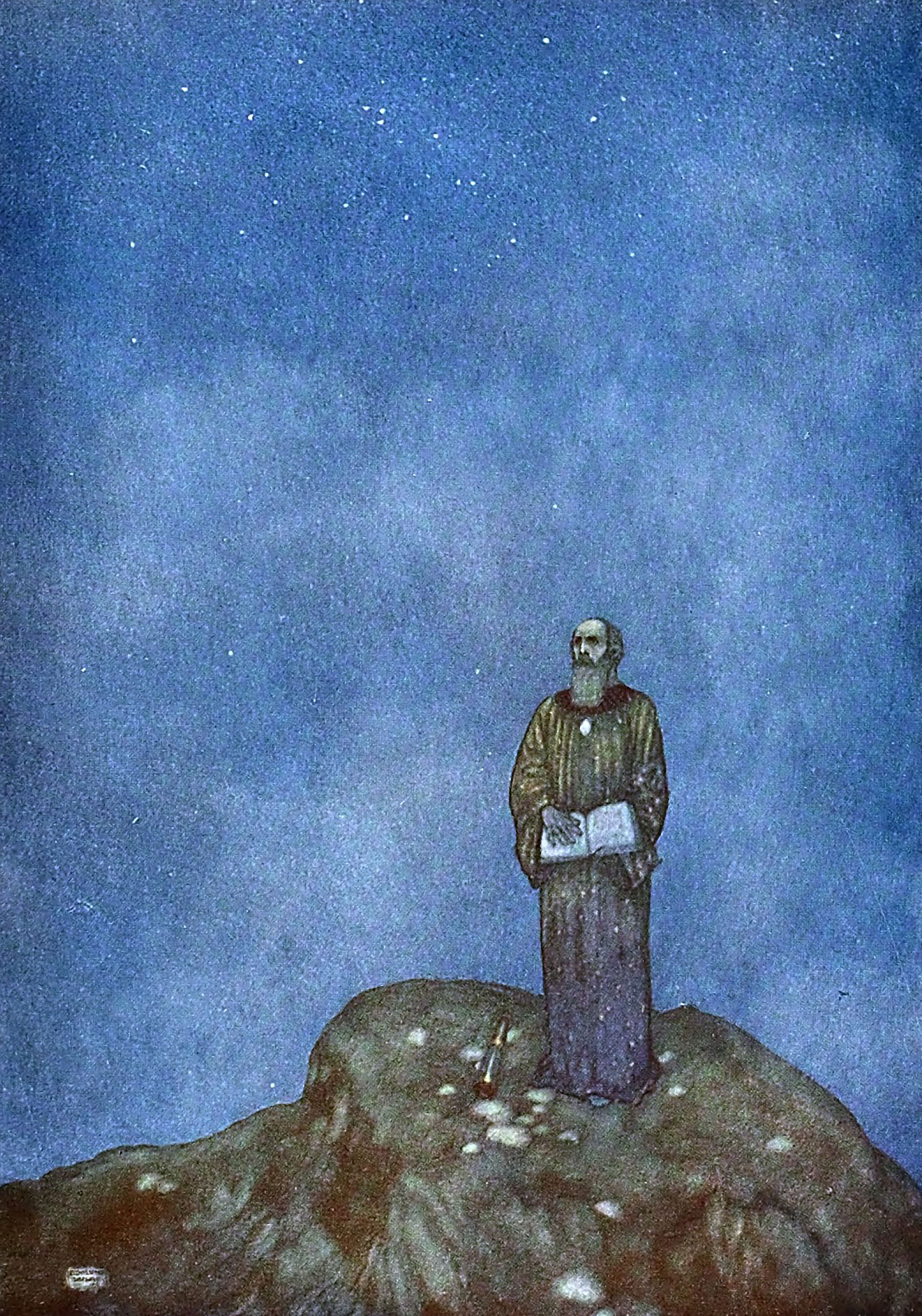
Prospero, by Edmund Dulac, 1908. HathiTrust.
Preparing to return to Italy, where he has been restored to his dukedom, Prospero renounces his magical spells and sets free those who had plotted against him. Prospero’s final soliloquy appears in the epilogue to act five of The Tempest, which is considered to be the last play Shakespeare wrote alone. Some scholars suggest that the sorcerer’s farewell to magic can be read as Shakespeare’s own retirement from the stage.
1611: Prospero’s Island
Now my charms are all o’erthrown,
And what strength I have’s mine own,
Which is most faint. Now, ’tis true
I must be here confined by you,
Or sent to Naples. Let me not,
Since I have my dukedom got
And pardoned the deceiver, dwell
In this bare island by your spell;
But release me from my bands
With the help of your good hands.
Gentle breath of yours my sails
Must fill, or else my project fails,
Which was to please. Now I want
Spirits to enforce, art to enchant;
And my ending is despair,
Unless I be relieved by prayer,
Which pierces so that it assaults
Mercy itself, and frees all faults.
As you from crimes would pardoned be,
Let your indulgence set me free.
The play was first performed on November 1, 1611, by the King’s Men before members of the English royal court at Whitehall Palace. The epilogue was read by Christopher Lloyd at Lewis H. Lapham’s memorial. “One hopes that these sorry lines are not by Shakespeare,” wrote the critic Elmer Edgar Stoll. “The Epilogue is nothing more than a series of wire-drawn conceits on the subject of pardon and indulgence, and with Shakespeare’s own personality and present situation seems to have nothing to do.”